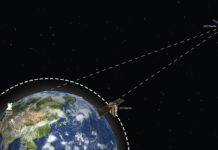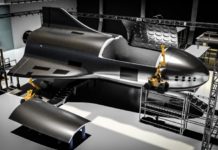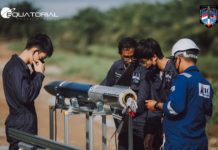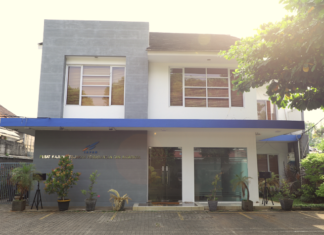From 23-24 February 2017, members Indonesia’s Space Agency, LAPAN, worked with a team from the Technical University of Berlin (TU Berlin) to share know-how on how to improve the country’s experimental rocket RX-320, particularly in the areas of nose cone separation, as well as vehicle-health monitoring systems.
The training session, held at the Hotel Mercure Ancol, Jakarta, is a continuation of previous knowledge transfers conducted for the development of RX-320, which focused on payload separation and atmospheric measurement.
During the event, a contract for 2017 between LAPAN’s Rocket Technology Centre and TU Berlin was discussed, as well as future collaborations.
Speaking at the opening address, Drs. Sutrisno, M.Si, Head of the Rocket Technology Centre, emphasized the importance of international cooperation in raising the level of rocket technology in Indonesia.
RX-320 is part of Indonesia’s indigenously-developed rocket family consisting of solid-fuel experimental rockets. The RX-320, which was first launched in 2008, consists of an individual boosters and measures only 320mm in diameter, and are part of a plan to develop multi-stage rockets, which can reach Low Earth Orbit, by the year 2020.
This is not LAPAN’s first collaborative project with TU Berlin, having partnered with the university to develop and deploy the microsatellite Lapan A-1, better known as the LAPAN-TUBSAT, which is based on the German DLR-Tubsat. LAPAN-TUBSAT was launched in 2007, from Sriharikota, using India’s Polar Satellite Launch Vehicle (PSLV).
LAPAN has also signed an agreement with CNES on 28 February 2017 to cooperate with France on space-related activities and is working closely with India to further develop Indonesia’s space program.







